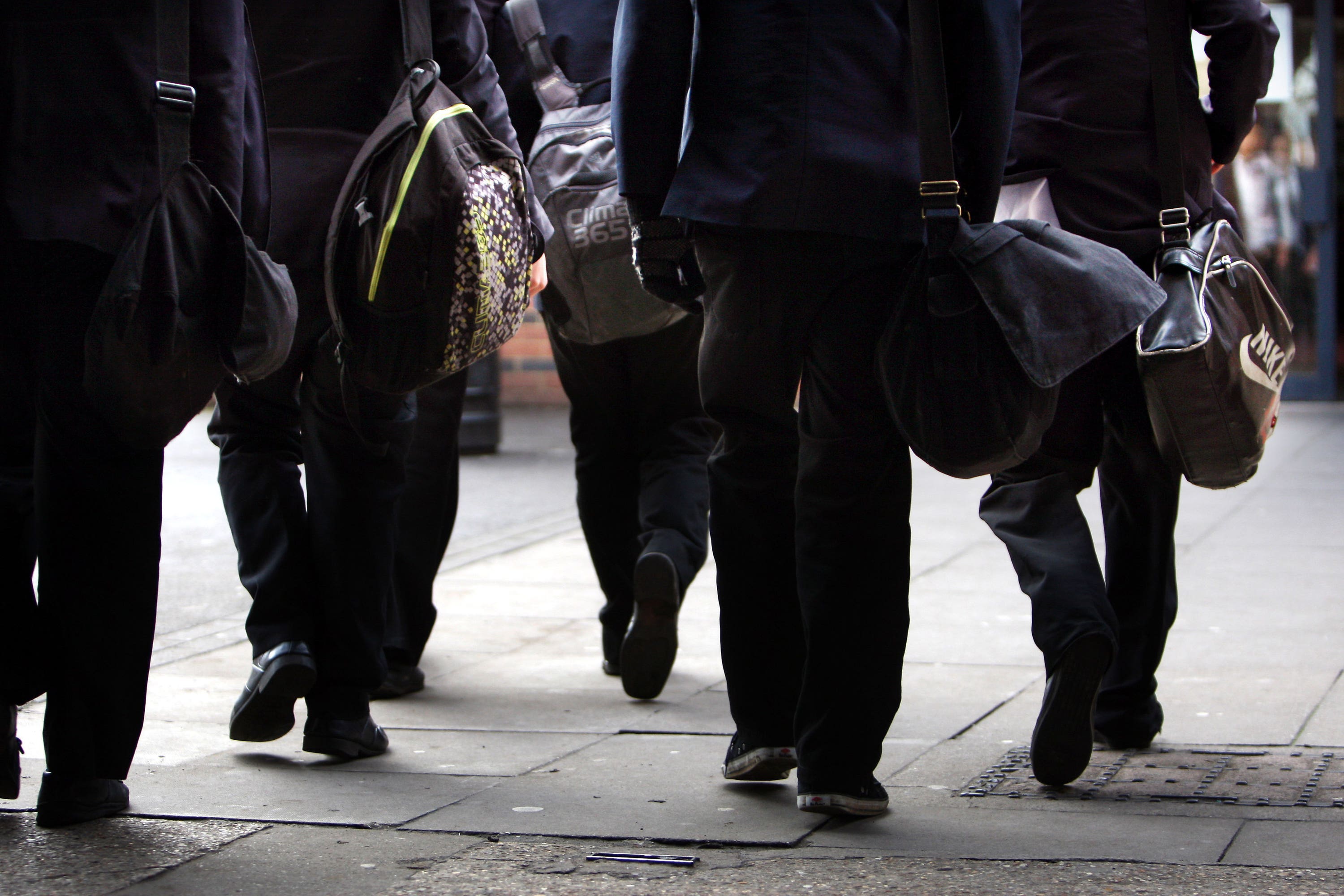School strike action could start in September, union says
Unite members in 10 council areas have backed industrial action.

Your support helps us to tell the story
From reproductive rights to climate change to Big Tech, The Independent is on the ground when the story is developing. Whether it's investigating the financials of Elon Musk's pro-Trump PAC or producing our latest documentary, 'The A Word', which shines a light on the American women fighting for reproductive rights, we know how important it is to parse out the facts from the messaging.
At such a critical moment in US history, we need reporters on the ground. Your donation allows us to keep sending journalists to speak to both sides of the story.
The Independent is trusted by Americans across the entire political spectrum. And unlike many other quality news outlets, we choose not to lock Americans out of our reporting and analysis with paywalls. We believe quality journalism should be available to everyone, paid for by those who can afford it.
Your support makes all the difference.School and early years staff could walk out as soon as early September in a dispute over pay, a union official has said.
Ten council areas will be affected by disruption after Unite members working in education and early years services voted for industrial action.
The union said thousands of staff including janitors, cleaners, caterers, classroom assistants and administration workers will take targeted action in the new school term.
Union members in Argyll and Bute, Clackmannanshire, Western Isles, Dundee, East Dunbartonshire, East Renfrewshire, Fife, Glasgow, Inverclyde, and Orkney backed the action.
The union said it comes after no improved pay offer was put on the table following talks with council umbrella body Cosla.
Our members deserve far more than 5% being served up by the politicians
Asked when industrial action could start, Graham McNab, regional officer for unite in Scotland, told BBC Radio Scotland’s Good Morning Scotland programme: “I would reckon early September at the earliest.”
Last week, support staff in the GMB Scotland union voted for strike action in a dispute over the offer of a 5.5% in-year pay rise, while Unison is currently balloting members on the issue.
Mr McNab said they were waiting for the Unison ballot to finish before the three unions meet to “discuss our plan of attack and our action to take industrial action”.
He claimed members are being treated “like second class citizens” and said that the Cosla meeting last week was “just like groundhog day – it’s going back to when they made the original offer to us; nothing has changed, nothing has improved”.
Asked what kind of offer Cosla would have to make to avert talk of industrial action, he said: “The same as last year.
“We’ve been quite clear for months now to Colsa that they need to make the same offer as they made last year which is £2,000 to the lowest-paid members that we’ve got. As I’ve said before, we’ve got members that are really struggling just now.”
The union is urging First Minister Humza Yousaf to directly intervene in the dispute.
Sharon Graham, Unite’s general secretary, said: “The message for both the Scottish Government and Cosla is loud and clear. Thousands of our members have voted to take strike action in education and early years services because they won’t accept a real-terms pay cut.
“Our members deserve far more than 5% being served up by the politicians. We will support our members all the way in their fight for better jobs, pay and conditions in local government.”
A Cosla spokesman said the “strong offer” raises the local government living wage by 99p to £11.84 per hour.
It is an offer which recognises both the vital role of the people who deliver our essential services across councils every day and the value that we, as employers, place on them
He said: “The reality of the situation is that as employers, council leaders have made a strong offer to the workforce. A strong offer which clearly illustrates the value councils place on their workforce, and it compares well to other sectors.
“It recognises the cost-of-living pressures on our workforce and, critically, it seeks to protect jobs and services.
“While the offer value in-year is 5.5%, the average uplift on salaries going into the next financial year is 7%. Those on the Scottish local government living wage would get 9.12% and those at higher grades, where councils are experiencing severe recruitment challenges, would see 6.05%.
“It is an offer which recognises both the vital role of the people who deliver our essential services across councils every day and the value that we, as employers, place on them.
“Crucially, it also raises the Scottish local government living wage by 99p to £11.84 per hour and sets out a commitment to work with our trade unions to develop a road map to £15 per hour in a way that protects our workforce and services we deliver.”
A Scottish Government spokesperson said: “Local government pay negotiations are a matter for local authorities as employers and unions.
“The Scottish Government and Cosla have committed to respect this negotiating arrangement as part of the Verity House Agreement.
“Despite UK Government cuts, the Scottish Government has provided a further £155 million to support a meaningful pay rise for local government workers, which has been taken into account in the pay offer already made by Cosla.
“The Scottish Government urges all the parties involved to work together constructively and reach an agreement which is fair for the workforce and affordable for employers.”